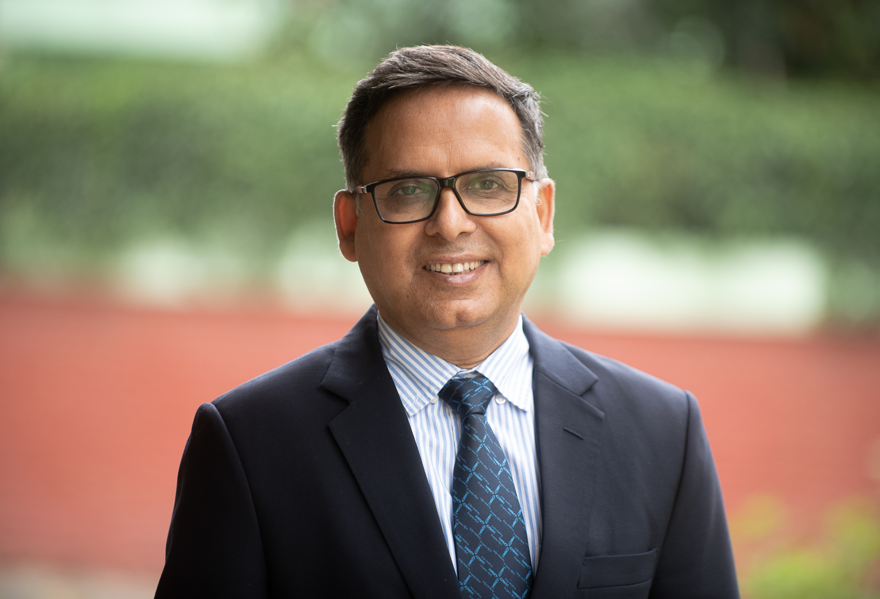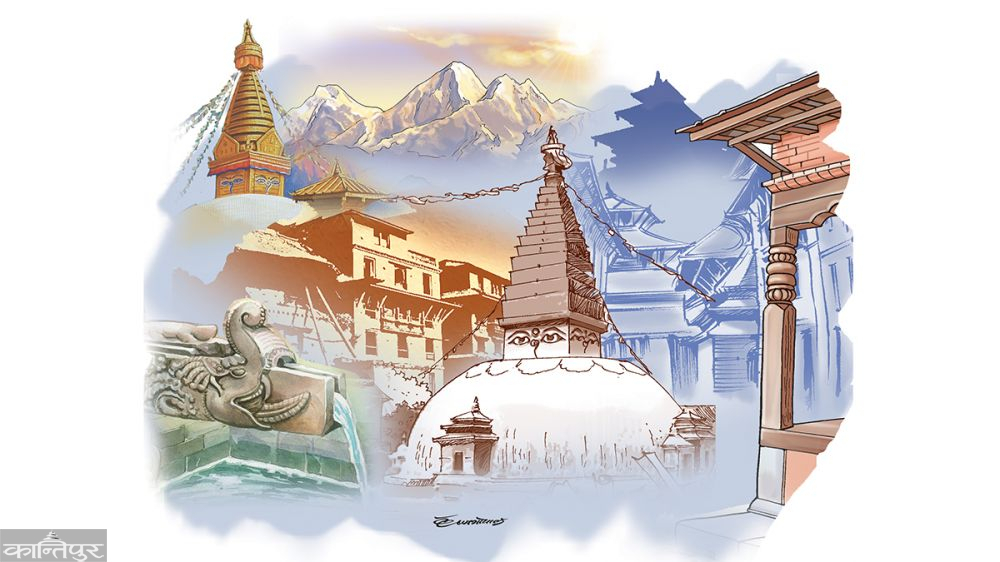Nepal as a self-confident, educated, skilled and prosperous democracy
Three ways to realize the vision:
1) Massive investment in agriculture
2) Strengthening and diversification of tourism
3) Quality education up to graduation
I want to see Nepal as a self-confident, educated, skilled and prosperous democracy that guarantees diversity, social justice, and inclusion. My vision is thus simple, comfortably achievable, and grassroots oriented. This vision will enable common Nepalis to associate with the state, participate in governance, realize their potential and contribute and benefit from nation-building.
No country is made without sincere efforts, the efforts of all its citizens. We have been talking about big things to develop Nepal: heavy infrastructures, hydropower, railways, highways, airplanes, big industries and so on. They are important for us no doubt. But they demand huge investment, strong discipline, implementation capacity and capable manpower, which we have not had despite decades of effort. Even if we make some progress in these areas, and we should continue working on them, our people will remain uneducated, deprived, marginalized and poor.
Quick Questions:
What are your favorite books on Nepal?
There are many but the one I have consulted many times and referred to in my writings is Bhuwan Lal Joshi & Leo Rose’s Democratic Innovations in Nepal: A Case Study of Political Acculturation (1966). I have also often advised my students of law and political economy to read John Whelpton’s A History of Nepal (2005). However, the books and thoughts that inspire me the most and help my understanding of Nepal and its global vision are those by BP Koirala.
A quote you live by?
Janani Janmabhumishcha Swargadapi Gariyasi (“Mother and motherland are superior even to Heaven.”)
What would you have been if not a lawyer?
Not sure. As a youngster I wanted to be an infrastructure engineer. Law was my second choice and remains my profession and passion. The third was agriculture. I had applied for all these subjects at my intermediate level, but ended up in law. The rest is history.
Our fundamental problems are related to food and nutrition, basic health, education, employment and sustainable lifestyle. Capital-intensive investments will not improve our quality of life unless our basic survival issues are first solved. Our basic problems are poverty, backwardness, maladministration and discrimination at all levels. We must sort out these basic issues first to build a self-confident, educated, skilled and prosperous democracy that guarantees the right to life, diversity, social justice, and inclusion. This is what generates love towards the country and its public institutions, and speeds up nation building. Once we accept this, the next issue is how to do it.
There are many ways, but nothing is new. If I am to narrow down the ways to realize my vision, I would emphasize three areas which we must focus on: massive investment in agriculture, strengthening and diversification of tourism, and quality education up to graduation. We have been an agricultural country, where a significant majority relies on subsistence agriculture for their livelihood, yet it has never received revolutionary emphasis. If there is a sector in the country which can immediately create jobs for most of the unemployed rural people, which can cut economic migration to cities and abroad, build the confidence of local people to emerge from poverty-trap with their own capacity, skills and yields, it is agriculture.
A self-reliant, sustainable, competitive, and inclusive agricultural sector can speed up economic growth and contribute to improved livelihoods, food and nutrition, and social security. Agriculture is inclusive of livestock development, agro-industries, forest management, national parks, soil conservation, rural energy, environment protection, and traditional way of life and cultures. We already have basic skills, traditional knowledge, sustainability options and family and social security. The challenge is to maximize their potential, develop linkages, provide technology, and agro-finance. Yet this sector has never been the number one priority of our policymakers.
Nepal is a unique tourist destination because of its beautiful hills and mountains, ethnic groups and other natural wonders. Tourism needs to be promoted keeping in view our capacity to realize its potential and use it in developing the agriculture sector. The country is already making progress in all components of tourism including tourist boards, travel services, accommodation, homestays, conferences and events, attractions and other tourism services. Wise promotion of agro-products and services that are used by tourists at different stages of travel and tourism will give further impetus to tourism. There is no limit to the growth of tourism as a vibrant, dynamic and growth oriented industry. The broad value chain of tourism including services like booking and reservation, transport, accommodation, hospitality, food and beverage, tourism products and destinations and related products and services can involve the whole country including farmers and peasants. Agriculture and tourism are intertwined, and help each other. This combination will empower every district and community in Nepal.
Apart from agriculture and tourism, the third important sector is education. This encompasses elementary school, middle school, high school and then college and university. For this we need full commitment on public funding, school facilities, staffing, compensation, employee benefits, and teaching resources. Access to quality education from liberal arts to science and technology is a major issue here. If we know the key to our success is agriculture and tourism, there should be no confusion about where the priority of our education sector should be.
There has never been enough investment in Nepal focusing on developing a balanced set of capabilities to make citizens economically productive, develop sustainable livelihoods, and meet the needs of the emerging nation. More than that, given our locational advantages, climatic conditions, beauty, security situation and tourism potential, Nepal can also offer itself as an international center for knowledge industries like universities, think tanks, research facilities, and allow intensive use of technology and human capital. Many sectors like education, consulting, science, finance, insurance, information technology, health service, and communications will then boom. We should allow foreign institutions and academic leaders to work in Nepal with all luxuries they are entitled to in their home countries.
Though development is multi-pronged, I am convinced more than ever that there is no other way of developing our country other than by promoting agriculture, tourism and quality education. Other sectors should come behind them. Even among them, agriculture, which is the most promising for common folks, and a national security issue, is the most deprived. Farmers and peasants face competition from the open border and unrestricted imports. The sector is on the verge of extinction. Tourism has not been a priority. As far as education is concerned, it does not give any hope to the people.
Our national security depends on these three important sectors. The open border Nepal has been forced to keep open after 1950-51 must be closed, and work permit laws must be started for all Indians. Nepalis should not have to compete against foreigners in their own country. A strict adherence to rule of law and anti-graft is equally important if Nepal is to develop faster, and the fruits of developments are to trickle down to rural masses.




